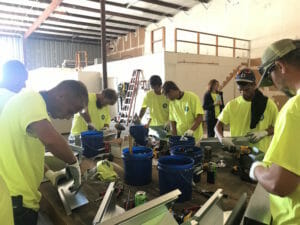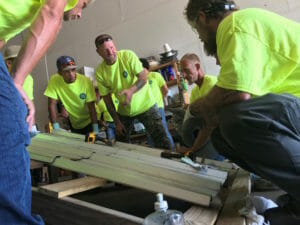Plenty of things can go wrong with a commercial roof system, but it takes a trained eye to find the small problems. Only a trained roofer can tell what parts of a roof need maintenance and repair, which is what makes regular comprehensive roof assessments a must for any facility manager. Here are just a few of the reasons that roof assessments are so important:
1. Stop a small problem before it becomes a big problem.
What’s an almost undetectable maintenance problem today, could become a leak or major repair down the road. Comprehensive roof assessments give roofers a chance to fix the little things before they become big, expensive problems.
2. Proactively plan your budget.
It’s a lot easier to come up with the money for a repair when you know that it’s coming. A regular roof assessment is the only way to know your roof condition, which allows you to plan for whatever maintenance is in the future.
3. Prepare for the changing seasons.
A small puddle in the summer can become an ice blockage during a winter freeze. An assessment gives a roofer a chance to clear the roof of anything that might become an issue when the season’s change, preventing a major problem later on.
4. Ensure you get the most out of your warranties.
Many roof parts and equipment come with good warranties. To take full advantage of these warranties, the roof needs to be well-maintained and the equipment with the warranty needs to be monitored carefully. Regular roof assessments are a chance to make sure everything is functioning as it should be and to cash in on those warranties if it’s not.
5. Extend the life of your roof.
When paired with maintenance, roof assessments are the best way to extend the life of a commercial roof. If left alone, a roof can develop problems that will eventually threaten its structural integrity. With a regular roof assessment, small repairs are completed before they can become a major leak.
6. Save money.
Roof inspections prevent roofs from developing costly problems, saving your business time and money. While there is an upfront cost for an inspection, it’s nothing compared to the cost of a major repair or re-roof.
To learn more about how Maxwell Roofing & Sheet Metal, Inc. can help make your roof last longer with regular assessments, contact us today.


